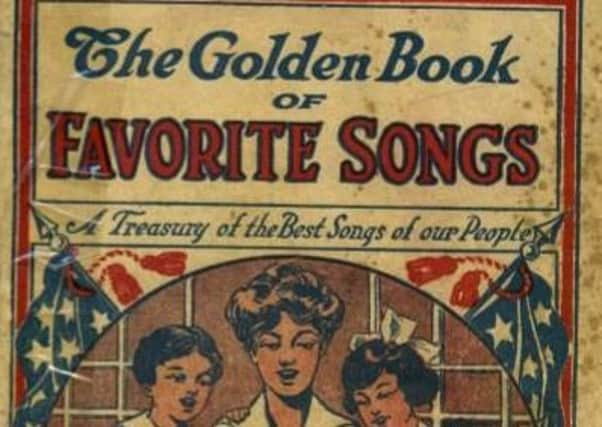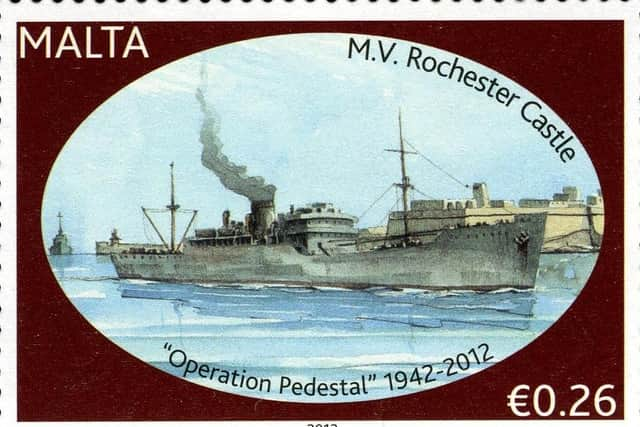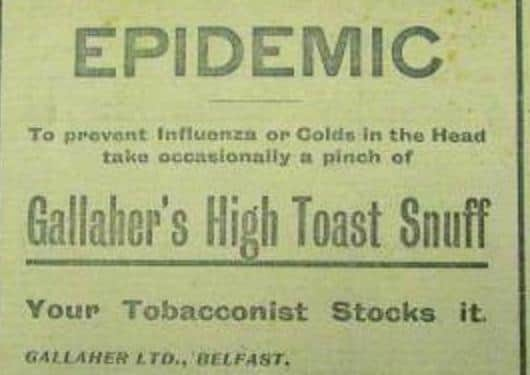The past year of restrained roaming went all around the world


Today’s seasonal page is a third and final lookback at a year when working from home greatly restrained Roamer’s roaming, though many of the stories shared here by readers took us all around Ulster, and to distant parts of the world as well.
We were introduced to sweet, crescent-shaped biscuits baked in Vienna called Vanillekipferl - the forerunners of croissants.
Advertisement
Hide AdAdvertisement
Hide AdI’d always thought that croissants were as French as baguettes or Beaujolais but it was a former soldier turned baker from Vienna, August Zang, who introduced modified versions of his native Kipferl to the French when he moved to Paris in the 1830s.


Zang set up a ‘Boulangerie Viennoise’ - Viennese Bakery - where his Kipferl sold, very appropriately, like hotcakes, and became known as croissants - the French for crescent.
During the year that’s passed News Letter readers’ e-mails introduced us to numerous people and places.
Like the two American sisters, Patty and Mildred Hill, who composed the oft-sung (while handwashing!) refrain ‘Happy Birthday to You’, first published in the Golden Book of Favourite Songs, printed in 1915.
Advertisement
Hide AdAdvertisement
Hide AdThe River Bush was explored here in fluent Ulster Scots “on hir wye doon tae the sea”; Belfast author, aviator and travel writer Geoff Hill alighted on this page after flying all over Ulster to get his pilot’s licence and Dublin writer Ann Lane introduced a host of striking local sculptures in her By The Way books.


There were numerous other introductions here during 2020!
To Lancashire-born Richard Hayward, reared in Larne, who became a cultural giant, author, film star, singer and actor...and then was virtually forgotten, until recently.
To Antrim-born John Getty McGee, designer and manufacturer of the iconic ulster coat (with a small ‘u’) worn by Sherlock Holmes and sold world-wide by McGee and Company of 30-34 High Street, Belfast.
And to Alexander Finlay, who started a soap-making company in Belfast in 1798, which became Ireland’s largest.
Advertisement
Hide AdAdvertisement
Hide AdFinlay’s closed down in 1949, decades before last March’s soap-surge, when we all began social distancing, wearing face masks and constantly washing our hands in soap and water whilst singing the Hill sisters’ song!
It’s heartening to note, on the day mankind surfs a global tsunami of well-intentioned New Year resolutions, that Ulster folk are so uniquely resolute. One of Roamer’s favourite accounts during 2020 was shared here as we approached the 75th anniversary of VE Day last May.
Along with harrowing, hazardous and heroic accounts from the front lines and the home front, a News Letter reader shared a very special story, on a stamp!
WWII’s Malta Convoy, code-named Operation Pedestal, was one of naval history’s greatest but most gruelling triumphs. A postage stamp issued in Malta in 2012 commemorated the MV Rochester Castle, a 7,795-ton refrigerated cargo ship launched by Harland and Wolff on February 11, 1937.
Advertisement
Hide AdAdvertisement
Hide AdAfter many unsuccessful Allied attempts to reprieve Malta from looming annihilation, a last-ditch deliverance was deployed - the Malta Convoy.
It involved 14 merchant ships and over 40 fighting ships with almost constant air cover - collectively, about 20,000 sailors and airmen.
The first merchant ship of only five that made it into Malta’s bomb-scarred Grand Harbour on 13 August 1942 was the Belfast-built MV Rochester Castle, shredded, buckled and battered by multiple enemy attacks.
The resolute toil and unique craftsmanship of Belfast’s shipyard workers guaranteed ships that would last!
Advertisement
Hide AdAdvertisement
Hide AdMilitary historian Peter Smith described the Malta Convoy as “one of the small number of WWII operations where you can say, without a doubt, that it alone made a difference.”
Rochester Castle returned to merchant duties after the war and was dismantled in the Far East in 1970. She was commemorated in 2012 on a 0.26 € Malta postage stamp, shared here by a News Letter reader last May.
Not long into 2020 coronavirus headlined most front pages, and this page too, particularly with readers’ accounts of the so-called Spanish Flu pandemic of 1918. The post-WWI pandemic (though it started during, if not before, the Great War) was originally called Spanish Flu (or the ‘Spanish lady’) because it was first recorded in Spain.
As our current pandemic burgeoned, the government’s Chief Scientific Advisor Sir Patrick Vallance stressed that coronavirus is “very different” to the 1918 Flu but heart-breaking accounts of its impact here, a little over a century ago, arrived Roamer’s mailbox.
Advertisement
Hide AdAdvertisement
Hide AdA young mother and her three daughters died within hours of each other in their family home near Moneymore.
In Belfast 100 tramway employees were absent with influenza during July 1918, and 120 in November.
Corpses lay unburied for two or three days in Enniskillen’s workhouse. A dancer died whist performing on a Belfast stage. Cures and remedies were suggested by experts, and advertised by manufacturers, in most of our newspapers.
An Irish Independent advertisement in December 1918 proposed Bovril as a cure, a News Letter ad. proffered an occasional pinch of ‘High Toast Snuff’ and a Limavady Rural District Council poster from November 1918 advocated “washing out nose and gargling mouth and throat with water.”
Try that whilst singing Happy Birthday...and a very Happy New Year to everyone.
Comment Guidelines
National World encourages reader discussion on our stories. User feedback, insights and back-and-forth exchanges add a rich layer of context to reporting. Please review our Community Guidelines before commenting.